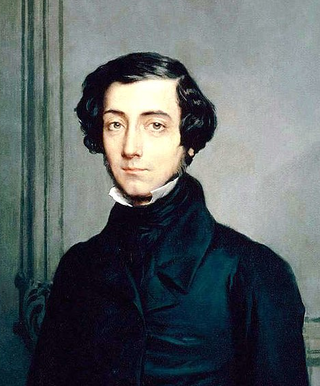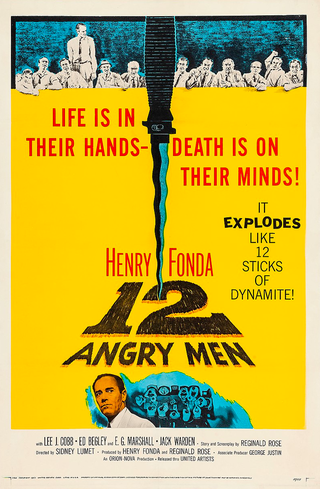Education
How the Decline in Jury Trials Threatens Democracy
America's greatest observer regarded jury service as a school for citizens.
Posted April 18, 2021 Reviewed by Jessica Schrader
Key points
- Jury trials are declining precipitously.
- Reaching a just verdict is but one of the goals of jury service.
- Jury trials serve as one of democracy's most important schools.
The trial of former Minneapolis police officer Derek Chauvin in the death of George Floyd has naturally garnered considerable public attention, as have great trials of the past such as the Salem witch trials, the “Black Sox” scandal, and the O.J. Simpson trial. The focal point in such cases is usually the perceived justice of the verdict. Yet while everyone wants to see justice done, it is important not to lose sight of other purposes at work in the American justice system, and in particular an often-overlooked function of jury trials.
In Democracy in America, Alexis de Tocqueville points out that the jury trial serves purposes that extend far beyond reaching a just verdict. “The jury,” he argues, “is therefore above all a political institution, and it is from that point of view that it must always be judged.” Tocqueville’s observations are especially apt in the present day, when rates of jury trials are falling precipitously. As progressively fewer people serve on juries, a vital source of civic education is drying up, with consequences that may continue to damage our culture for generations.

The jury trial is not faring well of late. Many Asian jurisdictions have abolished jury trials, on the grounds that they are subject to bias. In the U.S., the percentage of federal lawsuits decided by jury trial dropped from 5.5% in 1962 to 0.8% in 2013. The COVID-19 pandemic has not helped matters—in my home state of Indiana, the state Supreme Court, citing risks of infection, suspended jury trials from December 2020 through March 2021, and the federal courts, which suspended them in November 2020, are only now resuming jury trials.
A recent Louisiana Law Review article cites several reasons for the decline in jury trials, including civil damage caps, mandatory arbitration, criminal sentencing guidelines, and mandatory minimum sentences. Jury trials are seen by lawyers and judges as less predictable, slower, and less cost-effective than other alternatives, although both groups agree that they are worth the added costs, and judges, prosecutors, and defense attorneys all regard criminal jury trials as fairer than bench trials.
The right to jury trial was one of the grounds for the separation of the American colonies from England, as outlined in the Declaration of Independence, which accused the British crown of “depriving us in many cases of the benefits of trial by Jury.” Unsurprisingly, in light of this history, it is a right protected by the US Constitution, whose Sixth Amendment guarantees “the right to a speedy and public trial by an impartial jury of the state and district wherein the crime shall have been committed,” and the Seventh Amendment secures the same right in civil cases.
Tocqueville emphasizes that jury trials are about more than lawsuits—they are about the fate of society itself. From the point of view of those who have never served on a jury, the principal exercise of citizenship might appear to be paying taxes or casting an election ballot. But in these cases, the impact of each U.S. citizen’s action is miniscule—the difference of any one return to trillions of dollars in federal income tax revenue or one vote among tens of millions of national returns is hardly noticeable. Such ratios might lead naturally to a sense of civic impotence. By contrast, to those who serve on a jury, it becomes clear that each citizen can exert a powerful effect on the administration of justice.
Reginald Rose’s script for “12 Angry Men,” later adapted into a 1957 Sidney Lumet film, dramatizes the difference one juror can make. An 18-year-old-boy is accused of murder. Most jurors regard it as an open-and-shut case—one, for example, has tickets for a ballgame that he is eager to get to. But among the panel, whose members are identified only by number, is Juror No. 8, played by Henry Fonda, who believes that the case deserves serious discussion.

As the deliberations unfold, the jurors’ life experiences, character, and attitudes toward the justice system emerge, and each is spurred to self-examination. Looking at the case from multiple perspectives brings to light problems with the evidence, and increasing numbers of jurors switch their votes from guilty to non-guilty. Eventually, the defendant is found not guilty, and the jurors leave the courthouse, where the entire drama has unfolded. As they depart, two of the jurors introduce themselves to each other by name.
US Supreme Court Justice Sonia Sotomayor has stated that seeing the film was one of the reasons she decided to pursue a career in law, impressed in part by juror 11’s declaration of respect for the US justice system. If nothing else, it certainly dramatizes the difference one person can make, and it also captures one of Tocqueville’s central points—that serving on a jury is a formative experience. It teaches those who do so what it means to be a citizen, to care for justice and the welfare of the community more than one’s own.
Writes Tocqueville, “Juries, especially civil ones, instill some of the habits of the judicial mind into every citizen, and just those habits are the very best way of preparing people to be free.” To be free, citizens must believe that freedom is possible, that they have the means of securing their own freedom, and finally that the decisions they make and the way they comport themselves will meaningfully affect the freedom they and their fellow citizens enjoy. The rule of law upon which freedom requires that people be able, at least when called upon to do so, to put justice first.
It is one thing to understand equity in theory, as someone might who had read the Declaration of Independence, the Constitution, and other founding documents. But it is quite another thing to grasp equity in practice—what it means to delve into the facts of a particular case and attempt to reach a just and fair judgment. Tocqueville writes, “Each man, when judging his neighbor, thinks that he may be judged himself.” The jury experience encourages citizens to look at their society from the point of view of one seeking justice, a perspective that, once adopted, becomes difficult to abandon.
Every juror assumes a “sort of magisterial office,” making citizens feel “that they have duties toward society and that they take a share in its government.” It lifts them out of their parochial points of view by calling them to pay attention to matters outside their own affairs. Tocqueville believes that this can combat a powerful tendency in American democracy, the “individual selfishness,” which he likens to a “rust in society.” In effect, serving on a jury heightens each juror’s sense of civic responsibility, without which “no political virtue is possible.” Without service on juries, citizens are deprived of one of democracy’s best educational experiences.
Juries are wonderfully effective in shaping a nation’s judgment and increasing its natural lights. That, in my view, is the jury system’s greatest advantage. It should be regarded as a free school which is always open and in which each juror learns his rights, comes into daily contact with the best-educated and most enlightening members of the upper classes, and is given practical lessons in the law, lessons with the advocate’s efforts, the judge’s advice, and also the very passions of the litigants bring within his mental grasp. I think that the main reason for the practical intelligence and the political good sense of the Americans is their long experience with juries in civil cases.
In Tocqueville’s view, the jury system merits less concern as a means of securing justice, a matter on which he expresses some doubt when he writes, “I do not know whether a jury is useful to the litigants.” In this regard, “12 Angry Men” may do the jury system may over-emphasize the fact that the jury’s deliberations produce a just verdict. But from Tocqueville’s point of view, the jury system plays an even more important role in promoting democracy—serving as “one of the most effective means of popular education at society’s disposal.” It is a school whose decline continues only at our nation’s great peril.




